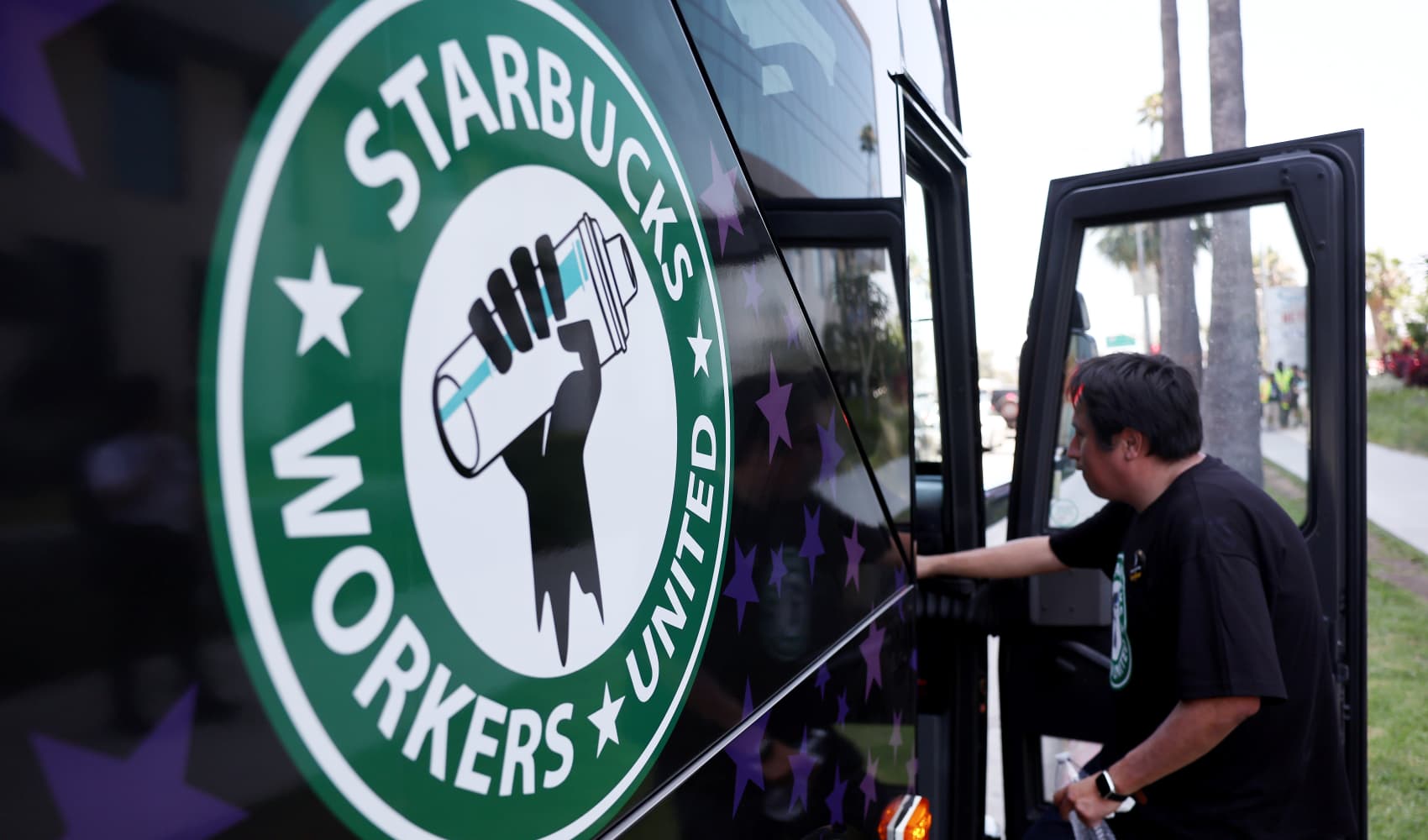
This year, Latina Equal Pay Day falls on Dec. 8, marking the symbolic date to which Latinas have to work — almost two years — to catch up to what their white male co-workers earned in 2021 alone.
The pay disparity is grim.
In 2021, Latinas working full time were paid approximately $0.57 for every dollar earned by white, non-Hispanic men, the National Women's Law Center reports — when part-time workers are included in the comparison, Latinas only made 54 cents for every dollar paid to white, non-Hispanic men in 2021.
That pay gap translates to a staggering loss of nearly $1.2 million over a 40-year career. A Latina would need to work until she is nearly 90 years old — six years beyond her life expectancy — to be paid what a white, non-Hispanic man has earned by the time he turns 60, the NWLC reports.
Get Boston local news, weather forecasts, lifestyle and entertainment stories to your inbox. Sign up for NBC Boston’s newsletters.
This equals almost $30,000 in lost wages per year, which could pay for 10 months of child care, nearly a year of food and seven months of rent.
Beyond wages
Latina workers have faced some of the most damaging economic effects of the Covid-19 pandemic, experiencing a steeper decline in employment during the coronavirus-induced recession than any other group of women or men, according to the Pew Research Center.
Money Report
One reason is that Latinas are overrepresented among low paid and minimum wage jobs in industries that lack significant worker protections or offer opportunities for career advancement, Jasmine Tucker, the NWLC's director of research, tells CNBC Make It.
Latinas with the largest pay gaps often work as maids, child-care workers and cashiers, among other critical, undervalued occupations, the Center for American Progress reports.
The wage gap is wider for women in certain Latina communities, too. Honduran women, for example, only make 44 cents, Guatemalan women make 47 cents, and Salvadoran women make 49 cents for every dollar paid to white, non-Hispanic men, the NWLC reports.
While the largest explained causes of the pay gap include the segregation of Latinas into lower-paying occupations and a history of discrimination and bias in hiring and salary decisions, a significant part of the pay gap can't be accounted for by these factors.
Many of the issues curbing Latinas from advancing in their careers and earning a fair, equitable wage start with access, career experts and business leaders point out. Increasing pay transparency, providing Latinas access to information, negotiation tactics and connecting them with allies in the workplace can help Latinas in the fight for equal pay.
'There's a lot of fear'
Anyelis Cordero, a first-generation Latina career coach, has helped dozens of Latinas negotiate their salaries — many of the women she works with, however, are scared to ask for more money because they fear retaliation, she says.
"It's really uncomfortable for some Latinas to have these conversations, there's a lot of fear," she says. "It's difficult to speak up if you feel you're being underpaid because culturally, we're taught to be humbled and grateful, that if we are given access to higher education and corporate jobs, that should be enough."
She continues: "Especially in spaces where there's not a lot of people who look like us, it feels overwhelming and risky to rock the boat. "
Latinas are still underrepresented in corporate America, making up less than 2 percent of vice presidents and less than 4 percent of managers at companies in the U.S., according to recent research from Lean In and McKinsey & Co.
What's more, a "broken rung" at the first critical step up to manager is still holding Latinas back from earning more money — for every 100 men promoted to manager, only 75 Latinas are promoted, compared to 82 women of color and 87 women overall, Lean In and McKinsey & Co. found.
'An open dialogue about pay can make a huge difference'
Vanessa Santos recalls a job earlier in her career where she was making $54,500 and her male colleagues were making $75,000.
Santos, who is the co-CEO of #WeAllGrow Latina, a lifestyle brand and online community that connects Latinas with career resources, didn't realize she was being paid unfairly until another woman of color saw Santos' pay stub on her desk and alerted her of the discrepancy.
"At that point I didn't even know I could ask for more money, I was just grateful to have the job," she says. "But I used the information my co-worker gave me to ask for a pay adjustment, which got approved … that experience taught me a lot about the importance of not just advocating for myself, but other women of color, because being able to just have an open dialogue about pay can make a huge difference."
Another pain point that Santos and Ana Flores, the founder and co-CEO of #WeAllGrow Latina, often hear about from their members, is a severe lack of mentorship and allyship in the office.
Only 27% of Latinas say a senior co-worker advocated for a raise for them, and Latinas are significantly less likely than white women to say their manager shows interest in their career development, Lean In and McKinsey & Co. report.
These relationships, Flores stresses, are absolutely essential to helping Latinas achieve equal pay. "Having those conversations really, really matter," she adds. "If you don't know what other people in your job are earning, or have someone in your corner, who supports your career growth, how else can you make sure that you are getting paid your worth?"
Check out:
'I have a smaller margin of error': How 4 women of color are navigating C-suite leadership at work
Sign up now: Get smarter about your money and career with our weekly newsletter






